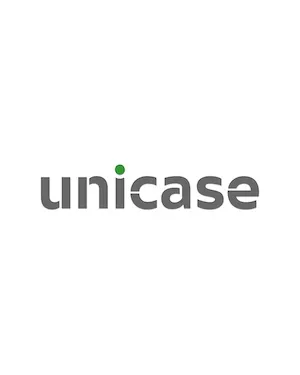The Ministry of Digital Development, Innovation and Aerospace Industry of the Republic of Kazakhstan has prepared a draft order on amendments to the Rules for the provision of communication services, approved by order of the Acting Minister for Investment and Development of the Republic of Kazakhstan dated February 24, 2015 No. 171. The draft was submitted for online discussion on August 25, 2021 year, the end of the discussion is expected on September 9, 2021.
The draft order provides for a whole package of changes and additions to the Rules for the provision of cellular services, the Rules for the provision of telephone services, and the Rules for the provision of Internet access services.
The changes are mainly aimed at protecting the interests of subscribers and improving the quality of communication services, and impose additional obligations on communication operators.
Of great interest are changes and additions to the Rules for the provision of cellular services (hereinafter - the Rules), below is an overview of the most important, in our opinion, changes to these Rules.
Internet access services are included into the list of basic cellular services
According to the addition to clause 12 of the Rules, it is proposed to supplement the list of basic cellular services, consisting of two services - voice communication services (including emergency calls) and SMS messaging services, with one more service - Internet access service where 3G and 4G cellular coverage is available.
This addition is directly related to the basic tariff plan. According to the definition given in the current Rules, the basic tariff plan is a prepaid tariff plan without a subscriber fee and containing basic cellular services.
Thus, if these changes are adopted, the basic tariffs of all cellular operators will have to include all three basic services, including Internet access services. It should be noted that, for example, the basic Beeline "Simple" tariff plan currently does not include the service of access to the Internet, and the operator will need to adjust its tariff line accordingly if the changes are accepted. https://beeline.kz/ru/products/tariffs/prostoi
We remind you that the concept of a basic tariff was introduced in 2020, in order, among other things, to transfer subscribers to it when tariff plans are abolished and when the number is ported to another operator's network, in the event that the subscriber did not independently choose another tariff plan. This was done in the interests of subscribers, since in the event of the abolition of the tariff plan, if the subscriber did not choose the tariff plan on his own, the operator had the right to transfer the subscriber to another tariff plan at his own discretion, including to a more expensive tariff.
Limiting the number of SIM cards registered for one individual
According to the addition to clause 20 of the Rules, if necessary, the cellular operator can allocate (register), at the request of the subscriber, a certain number of subscriber numbers for one individual, which may be sufficient for personal, family and other use.
The proposed rule does not establish a specific number of SIM cards that can be issued to one individual, this is determined by the operator, and then if necessary.
This restriction is being introduced for the first time, although the question of its necessity has been raised for a long time, since, as indicated in the justification for the draft Rules, often a large number of numbers are purchased for subsequent resale, sending spam, or for fraudulent purposes, for example, for illegal withdrawal of funds.
It should be noted that in Russia in 2015 the number of SIM cards was called upon to be limited to ten numbers. The Association of Russian Banks also proposed to consider the application of similar measures in 2019 in order to exclude fraudulent withdrawal of funds through the accounts of mobile operators. However, the authorised bodies did not support such a proposal, referring to the fact that a Russian citizen has the right to have as many SIM cards as he wants, this is guaranteed by the Civil Code, since a telecom operator has no right to refuse to conclude an agreement on the provision of communication services.
Prohibition of automatic activation of roaming services
According to the rationale given to the draft Rules, the main reason for the introduction of this novelty is the problem of border roaming. It is indicated that from the base stations of foreign operators standing in the border area, a permissible level of signal penetration is possible, and with the current system of automatic activation of roaming services, the subscriber, being on the territory of Kazakhstan, automatically (forcibly) switches to the network of a foreign operator of border states. In such cases, subscribers complain about unreasonable debiting of funds.
To solve this problem, it is proposed to cancel the automatic activation of roaming services, and if necessary, the subscriber will need to send an SMS message or USSD request for this service.
If the changes are adopted, this rule will affect all subscribers traveling abroad - in order to use the roaming service, it will be necessary to independently activate it in the above ways.
Changing the terms and conditions of a tariff plan only with the consent of the subscriber
Let us recall that the requirement to obtain the consent of the subscriber to change the tariff terms and conditions was already introduced in 2015, which caused criticism from communication operators, since the subscriber bases of operators are in the millions and getting consent from each subscriber was an impossible task. But in 2017, this requirement was canceled and the operators again were granted the right to change tariff plans unilaterally with a preliminary notification of this via SMS message 30 days before the changes to the tariff plan.
In the proposed version of the new clause 10-1) of clause 22 of the Rules, the requirement to obtain the consent of the subscriber to change the conditions of a tariff plan is reintroduced, while the subscriber's consent will mean the absence of the subscriber's statement of refusal to change the tariff within 30 days after the operator sends bulk SMS about changing the tariff. By proposing such a revision, the drafters of the Rules have tried to solve the above problem of obtaining consent from many subscribers. Subscribers will need to track all SMS messages received from the operator in order to have time to refuse to change the tariff rate within the specified 30-day period. But at the same time, according to the proposed new subclause 4) to clause 26-1 of the Rules, if the subscriber does not express his consent to change or replace the tariff plan (that is, refuses to do so), the basic tariff plan would be activated.
Thus, if the subscriber manages to cancel the changed tariff within the specified period, then the basic tariff plan will be activated. If the subscriber does not refuse to change or replace the tariff, the changed tariff will be activated.
Please note that despite the above changes, subparagraph 28) of paragraph 22 of the Rules remains unchanged:
"22. When providing cellular services, the cellular operator:
...
28) changes or cancels the tariff plan, notifying the subscriber about it by means of a short text message at least thirty calendar days before the introduction of changes or abolishing the tariff plan. ".
Subscriber's right to set his own tariff plan
It is proposed to entitle the subscriber to independently set his own tariff plan, providing for an advance payment and a subscription fee with a service delivery period equal to one calendar month, depending on the technical capabilities of the cellular operator.
Subscriber's right to recalculation in case of tariff change before the expiration of the current tariff plan
It is proposed to give the subscriber the right to demand recalculation or refund of the amounts paid for the use of communication services in the event of a change in the tariff plan before the expiration of the current tariff plan.
You can get acquainted with the draft amendments to the Rules on the Open Legal Acts portal:
https://legalacts.egov.kz/npa/view?id=11018185
The content of this article is intended to provide a general guide to the subject matter. Specialist advice should be sought about your specific circumstances.

